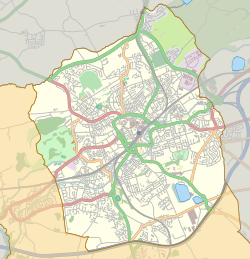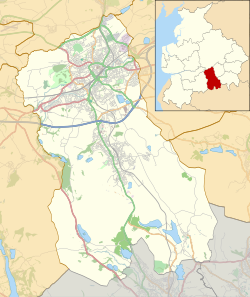This article needs additional citations for verification .(June 2025) |
| Bank Hey | |
|---|---|
Location within Lancashire | |
| OS grid reference | SD694302 |
| Unitary authority | |
| Ceremonial county | |
| Region | |
| Country | England |
| Sovereign state | United Kingdom |
| Post town | BLACKBURN |
| Postcode district | BB1 |
| Dialling code | 01254 |
| Police | Lancashire |
| Fire | Lancashire |
| Ambulance | North West |
| UK Parliament | |
Bank Hey (also Sunnybower or Sunny Bower) is a suburb of Blackburn, Lancashire, England. It is located to the east of the town, north of Whitebirk and near the boundary with Hyndburn. It forms part of Little Harwood. [1]
It should not be confused with an area to the south of Blackburn, also named Bank Hey, for which a development plan was drawn up in March 2020. [2]


